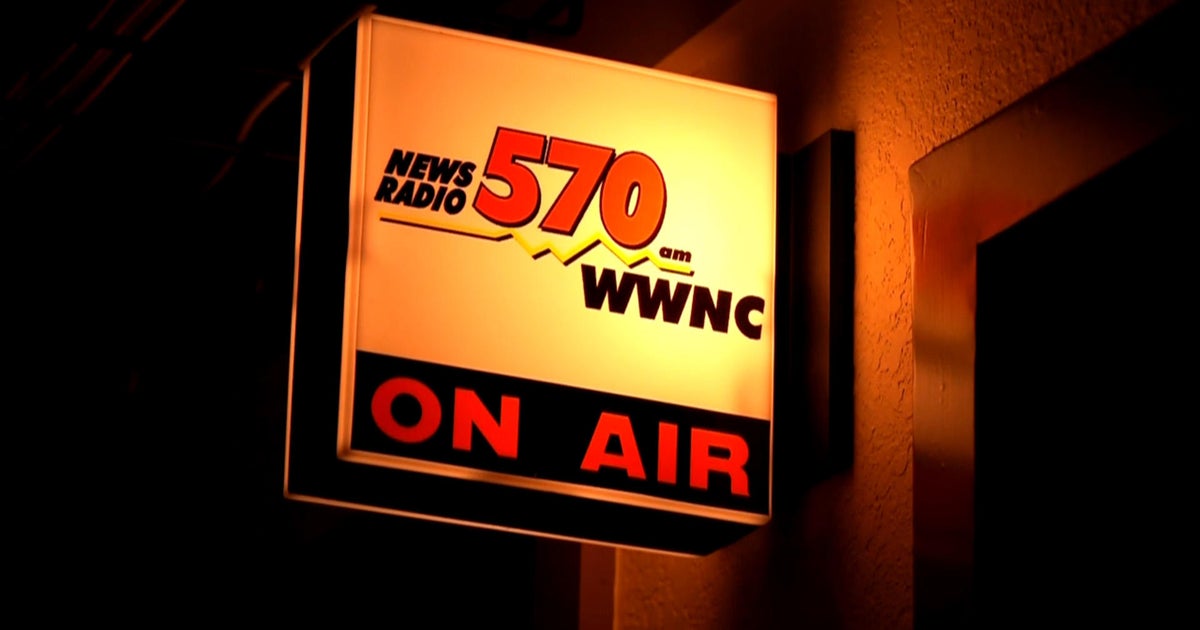North Carolina
2 people wanted for questioning in connection with missing 15-month-old

Sunday, August 13, 2023 2:38AM
LINDEN, N.C. (WTVD) — The Cumberland County Sheriff’s Office is searching for two people for questioning in connection with a missing 15-month-old.
Detectives are asking for the public’s help to find Brandy Marie America, 27, and Lawrence “Larry” Rexal America, 55, of Linden for questioning in the disappearance of 15-month-old Raylee Marie Reed.

Raylee was reported missing Friday after she was last seen on July 14 with Lawrence America.

Officials said in July Raylee was placed in the care of a family member whose custody rights were revoked on August 8.
Raylee was last seen in a Grey Nissan Titan with NC license plate RDX-2803, driven by Lawrence America on Crocket Raynor Road in Linden, North Carolina.
She is described as weighing 15-20lbs, 24 inches, with blue eyes, and blonde hair.

Featured video is from a previous report
Copyright © 2023 WTVD-TV. All Rights Reserved.

North Carolina
Santa Claus swaps reindeer for alpacas at farm in Waynesville

WAYNESVILLE, N.C. — At Winchester Creek Farm, Santa Claus traded in his traditional reindeer for alpacas during the farm’s Santa Tour on Monday.
The event offered visitors a unique opportunity to pose for photos with Santa and interact closely with the farm’s animals.
The farm also featured a large mailbox for children to send their letters to Santa. Luanna Baldwin, a mother from Canton, expressed her delight with the experience.
“This was a great outing to take the girls for some Christmas magic,” Baldwin said. “They’ve been asking to see Santa, write a letter specifically, so that was super fun.”
At Winchester Creek Farm, Santa Claus traded in his traditional reindeer for alpacas during the farm’s Santa Tour, which concluded on Monday, Dec. 23.
WLOS via CNN Newsource
In addition to the alpacas, the tour allowed guests to feed and pet various other farm animals. Farm Manager Ashley Edwards highlighted the joy the event brings to visitors of all ages.
“We have people come in who are in their 60s, 70s, and above who have never touched a chicken before, and I’m able to provide that kind of happiness to their hearts to their soul, and I think it’s great,” Edwards said. “This is a memory people aren’t going to forget.”
Winchester Creek Farm has been hosting the Santa Tours for the past six years. Although this year’s event has ended, the farm offers tours throughout the year.
Winchester Creek Farm operates as a year-round working farm, raising animals primarily for the fiber produced by their coats.
SEE ALSO | Schools closed for winter break: Family fun things to do
Featured video is ABC11 24/7 Livestream
North Carolina
Multiple injuries reported in northeast Charlotte 8-car crash

CHARLOTTE, N.C. (WBTV) – An eight-car crash injured several people and shut down a major interstate on Christmas Eve, the Charlotte Fire Department confirmed.
The crash happened at Interstate 85 North at West W.T. Harris Boulevard. I-85 was shut down by 7:40 p.m. and isn’t expected to reopen before 10:40 p.m.
Of those injured, two were taken to area hospitals, according to Medic.
Crews at the scene said to expect significant delays in the area.
For the latest traffic maps, visit drivenc.gov.
WBTV is working to find out more information. Download the free WBTV News app for the latest updates sent straight to your device.
Copyright 2024 WBTV. All rights reserved.
North Carolina
How AM radio helped storm recovery efforts in North Carolina

Watch CBS News
Be the first to know
Get browser notifications for breaking news, live events, and exclusive reporting.
-

 Business1 week ago
Business1 week agoFreddie Freeman's World Series walk-off grand slam baseball sells at auction for $1.56 million
-
/cdn.vox-cdn.com/uploads/chorus_asset/file/23951353/STK043_VRG_Illo_N_Barclay_3_Meta.jpg)
/cdn.vox-cdn.com/uploads/chorus_asset/file/23951353/STK043_VRG_Illo_N_Barclay_3_Meta.jpg) Technology1 week ago
Technology1 week agoMeta’s Instagram boss: who posted something matters more in the AI age
-
/cdn.vox-cdn.com/uploads/chorus_asset/file/24924653/236780_Google_AntiTrust_Trial_Custom_Art_CVirginia__0003_1.png)
/cdn.vox-cdn.com/uploads/chorus_asset/file/24924653/236780_Google_AntiTrust_Trial_Custom_Art_CVirginia__0003_1.png) Technology4 days ago
Technology4 days agoGoogle’s counteroffer to the government trying to break it up is unbundling Android apps
-

 News5 days ago
News5 days agoNovo Nordisk shares tumble as weight-loss drug trial data disappoints
-

 Politics5 days ago
Politics5 days agoIllegal immigrant sexually abused child in the U.S. after being removed from the country five times
-

 Entertainment6 days ago
Entertainment6 days ago'It's a little holiday gift': Inside the Weeknd's free Santa Monica show for his biggest fans
-

 Lifestyle6 days ago
Lifestyle6 days agoThink you can't dance? Get up and try these tips in our comic. We dare you!
-

 Technology7 days ago
Technology7 days agoFox News AI Newsletter: OpenAI responds to Elon Musk's lawsuit

















